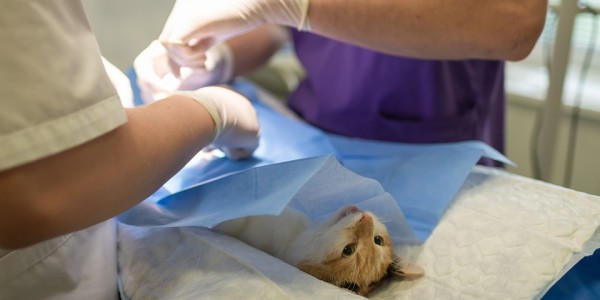Becoming a vet is often the number one choice of career for anyone who loves animals and ‘vet’ is frequently included in top ten lists of children’s dream jobs. The world of veterinary medicine is much larger than you might think and there are actually many different career options, including veterinary nurse, anesthesiologist, zoo veterinarians and more.
A veterinary surgeon is one of the most popular vet career choices, but what do they actually do? All veterinarians are qualified to carry out some surgical work, but veterinary surgeons are specially trained to perform advanced or more complicated procedures. If you’re thinking of specialising in veterinary surgery, see below to find out more about what this role entails.
Diagnostic tests
Diagnostic tests are used to get a better idea of what might be wrong with the animal in the vet’s care. They could include x-rays, radiographs, ultrasound scans or blood tests. Veterinary surgeons are specially trained to interpret these results and decide the most appropriate form of treatment.
Neutering
Neutering is a surgical procedure used to stop animals from breeding. It’s most common amongst domestic pets like cats and dogs, to prevent unwanted litters and to reduce possible behavioural problems.
Operations for sick or injured animals
A veterinary surgeon may perform a vast range of operations and some specialise in a certain area, such as cardiology or neurology. Operations performed by veterinary surgeons may include dental surgery, fixing broken bones, wound repair, eye surgery (such as removing tumours), and foreign body removal (if your pet has swallowed something they shouldn’t!).
General health checks
Again, this covers a vast range of tasks, including taking an animal’s temperature or blood pressure, weighing them, checking their heart rate and examining their ears, eyes and throat. Vets may also give owners general advice about how to look after their pet, including specialist diets, exercise plans or behavioural advice. Administering vaccinations may also be part of general health care, especially for puppies and kittens.
Looking for your dream veterinary surgeon role? Get in touch with the experts at Vet Recruitment to see how we could help you. We specialise in matching jobseekers in the veterinary field with the ideal role for their skills and talents. Our skilled team of recruiters are dedicated to understanding your requirements and expectations and we’ll work to secure your next position as soon as possible. For more information about how we could help you, give us a call today or visit our website to browse the latest vacancies.

